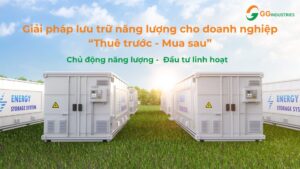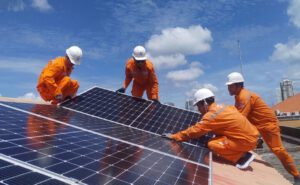The domestic carbon trading platform will undergo a pilot operation from June 2025 until the end of 2028, before officially launching in 2029.
Deputy Prime Minister Trần Hồng Hà recently signed a decision on January 25 approving the project to establish and develop a carbon market in Vietnam.
According to the project, Vietnam will proactively establish and develop a centralized carbon market, ensuring market principles under state management and supervision. This aims to promote green transformation, achieve net-zero emissions by 2050, and enhance the competitiveness of enterprises in the market.
Specifically, from June 2025 to the end of 2028, the domestic carbon trading platform will operate on a trial basis. Three years later, it will be officially operational.
The Hanoi Stock Exchange (HNX) will develop and provide services for the domestic carbon trading platform based on standards set by the Ministry of Natural Resources and Environment and the Ministry of Finance.
Mangrove ecosystem at Thị Nại Lagoon (Bình Định Province), March 2024. Photo: Dũng Nhân
The tradable commodities in Vietnam’s carbon credit market include two types: greenhouse gas emission allowances and carbon credits certified by the Ministry of Natural Resources and Environment. Each commodity will be assigned a unique code to ensure no duplication. Participants in the market will need to have custody accounts. The registration and issuance of unique codes will be centralized to ensure unified and consistent data.
The Vietnam Securities Depository and Clearing Corporation will provide depository and payment services. Payments will be automated based on transaction results provided by HNX, following the principle of simultaneous transfer of goods and payment at a settlement bank.
A carbon credit is a type of license or tradable certificate that gives the holder the right to emit one ton of CO2 or an equivalent amount of another greenhouse gas on the regulated list.
In practice, Vietnam’s emission reduction roadmap in agriculture has been prepared since 2014, starting with the development of carbon credits in the North Central region.
In October 2020, Vietnam and the World Bank (WB) signed a transfer agreement for 10.3 million carbon credits. So far, Vietnam has transferred part of these credits, with 5.9 million credits remaining to be transferred. The WB has proposed the transfer of 4.9 million credits.
After completing the transfer of 10.3 million carbon credits, by March 2024, Vietnam had received a total of $51.5 million from the WB. This amount has been allocated to localities, with six provinces in the North Central region implementing disbursements, benefiting approximately 7,000 forest owners. To date, nearly 400 billion VND has been disbursed by local authorities in compliance with regulations.
Currently, Vietnam is implementing the 1 Million Hectares of Low-Emission Rice Program, a significant project aimed at reducing methane emissions — a greenhouse gas with a significant impact on climate change.
Source: VNExpress






